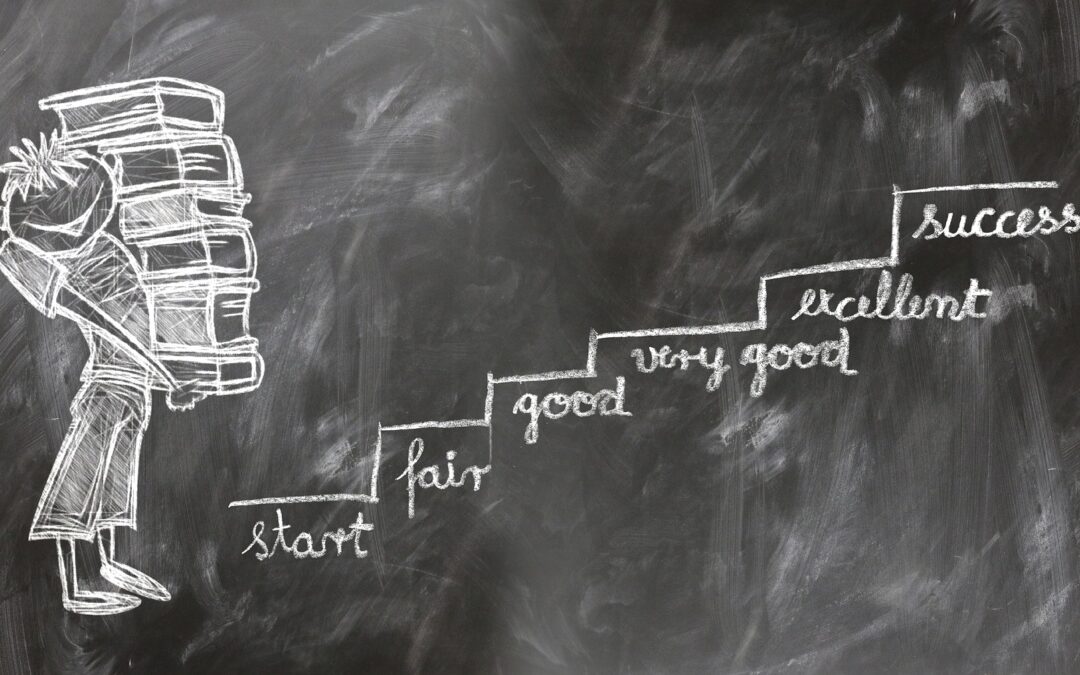
(Strength based training and strength based parenting works for these students)
We focus on how parents can take charge and help your right brain kinesthetic learner succeed. Note, most smart struggling students are right brain kinesthetic learners, who learn best when they see and experience information. When we were told our 8th grade daughter was not college material, I became a mom on a mission. I leveraged my educational and parenting skills and developed what has become the 3D Learner Program ®. With the program, she was able to improve:
- Her reading comprehension 4.2 grade levels in 7 months
- Her Grade Point Average from a 2.7 to a 4.4
- Chances for success. She got her Master’s in Education from the University of Florida. Next year will be her 19th year of teaching and in May 2024 she should be receiving her Doctorate in Education from the University of Florida.
Many of our students are bright right brain kinesthetic learners, who often struggle with:
- Reading comprehension — just this year we have had 6th and 7th graders who were 3, 4 and even 5 years below grade level
- Reading speed — too often students read so slowly that it is hard to sustain attention
- Math word problems
- Putting their thoughts on paper
- Being in classes with kids who are not motivated
For the purposes of this blog post, we will define success for these students as:
- Being on grade level for reading speed
- Reading comprehension two, three or four grade levels higher than their present level
- Being able to get a B or better in math, learn how to check their work and start to like math
- Both mastering math facts and being good at math word problems
- Writing at least at grade level
- Being able to do their homework more independently in much less time
- Now being placed in advanced or gifted classes, where they are far more engaged
- Being proud of their success
Here is a classic case:
The parents had invested $34000 in a competitors’ program and their 5th grade daughter’s reading comprehension was at the 1st grade level, she was a slow reader, and her homework was taking 2.5 hours or longer. She came across an article that asked
- Does your child remember places visited, even from years ago?
- Does your child learn best when he or she sees and experiences information?
- Is your child a lot smarter than her present level of reading comprehension would indicate?
The mom was an action taker. She called us from Texas and wanted to know more. We did a remote assessment that showed her reading comprehension was at the 1st grade level, her reading speed was 115 words per minute and she was a right brain kinesthetic learner. Her parents brought her to Florida for an intensive week of training.
6 months later, she had improved as follows:
- Her reading comprehension was now at the 5th grade level
- Her reading speed was 229 words per minute, virtually doubling where it had been
- Homework time had decreased from 2.5 hours to 1.25 hours and her mother’s time helping her had decreased from 2.5 hours to 15 minutes
- She was now doing well in school and was being recommended for some advance classes in 6th grade — where she did very well
Note, in 2023 we had had many local successes and we had had successes with students from the State of Washington and Arizona.
If you would like to discuss how to put your child on their
Pathway to Success, call us at 561-361-7495
What Are The Common Strengths and Challenges for The Smart Struggling Student
The bright right brain kinesthetic learner often has 3, 4 or 5 of the following strengths and challenges
They often:
- Learn differently and are right brain kinesthetic learners
- Have auditory and/or visual processing issues
- Have one or more executive function challenges (attention, working memory and/or processing speed)
- Have a learning disability or dyslexia
- Are frustrated and/or anxious
Note, the strengths of the right brain kinesthetic learner are rarely identified or capitalized on.
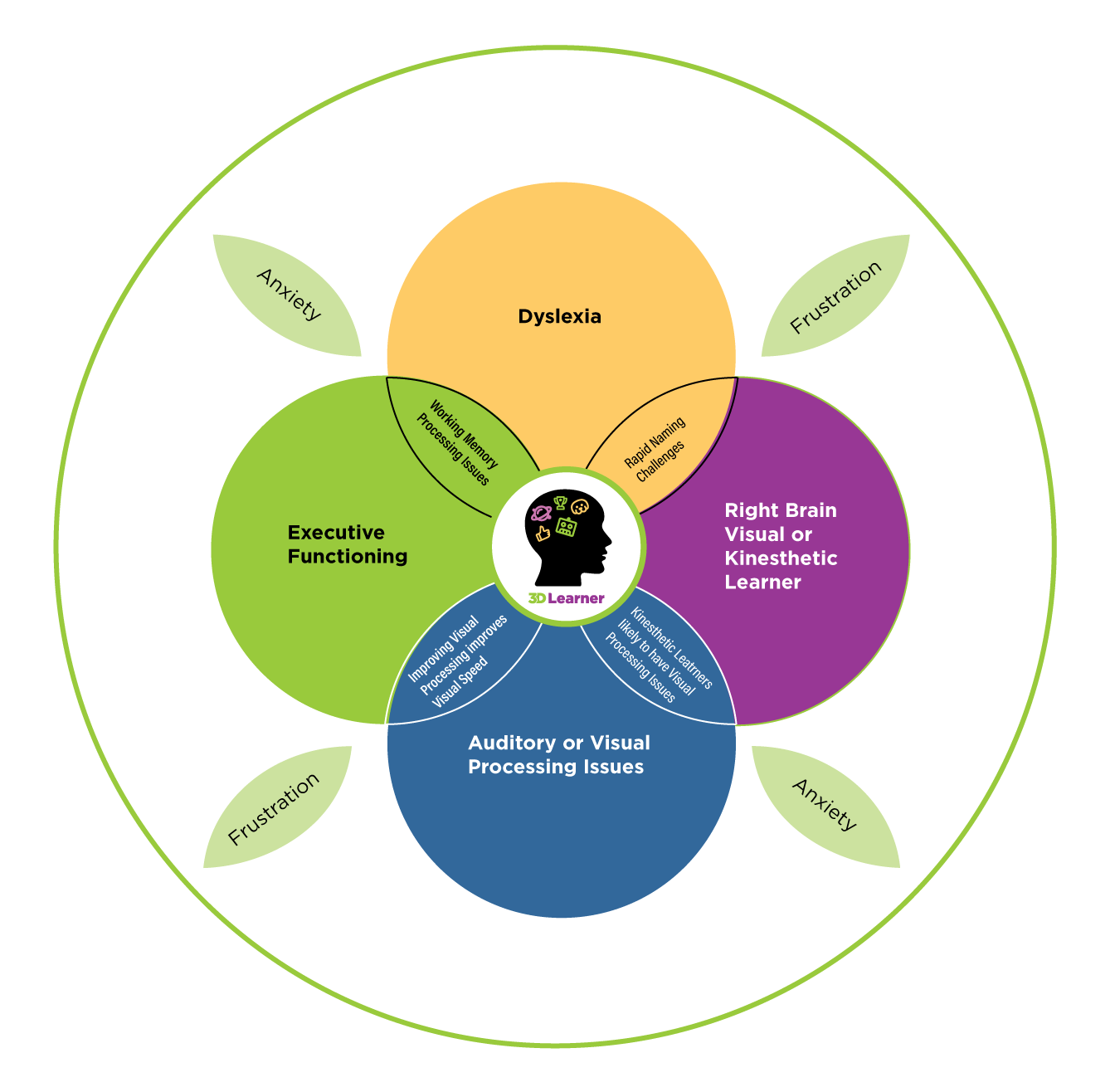
Bright Right Brain Kinesthetic Learners Benefit When One Capitalizes on Their Strengths,
while Identifying and Addressing the Relevant Issues
This Often Requires The Parents to Take Charge
Is your child a bright right brain kinesthetic learner?
- Does your child remember places visited, even from years ago?
- Does your child learn best when he or she sees and experiences information?
- Is your child a lot smarter than present results would indicate?
For a more comprehensive screening tool, download our “Is my child a right brain kinesthetic learner”.
If your child is a right brain kinesthetic learner, you play a pivotal role. Too many of these kids are identified by their challenges. These could include dyslexia, executive function issues, auditory or visual processing and/or anxiety and frustration. We have been there with two of our four kids. Over the last 26 years we have helped thousands of kids like this succeed with a process that starts by helping parents to be an informed, empowered and proactive parent.
We FRAME this differently than most. Specifically:
– Frustration comes with the territory. We encourage you to embrace the frustration and to commit to helping your child to be all they can be. If your child is a right brain kinesthetic learner, there is a good chance that when you leverage their strengths, identify and address their challenges, and leverage their desire to succeed, success is much more likely to follow.
– Reject the status quo and low expectations. Too often we have heard, parents being told that one cannot expect significant gains within a year. Two key points:
- We are seeing many kids whose reading comprehension is far below grade level. This chart shows how often students in special education fall far below grade level
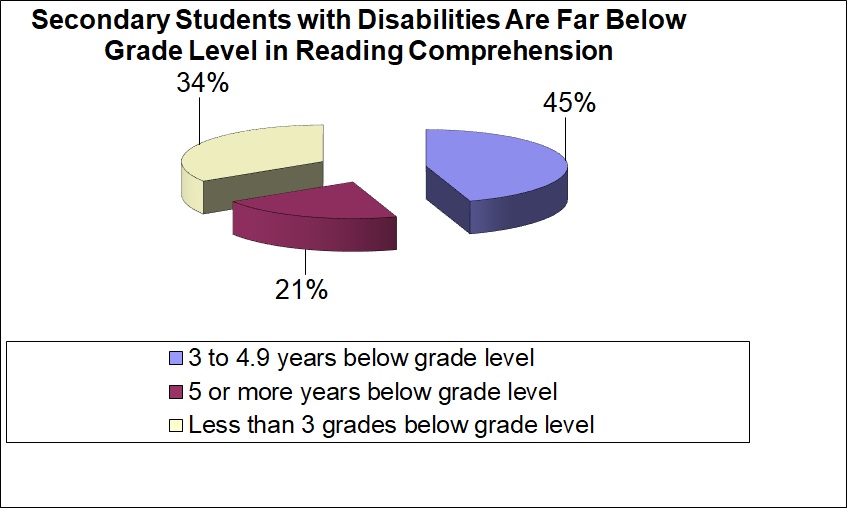
- Improving reading comprehension by 2, 3 or even 4 grade levels within 4 to 6 months is often possible. A few words of caution:
- Such results take both a commitment to training and follow-up
- Students with lower IQs and/or significant impairments may not make these gains
- Cooperation and collaboration help
Waiting is Not an Option
The next critical step is to:
Assess for Success. This would include assessing for:
- How your child learns best
- Executive function issues (e.g. working memory, processing speed and attention)
- Auditory and visual processing issues.
- Dyslexia or another learning disability
- Your child’s present level of reading fluency and reading comprehension
If the assessment shows considerable upside potential, we recommend you adopt the
Mindset that Success is the Only Option. Then you consider
- Enrolling the services of the right professional for your child and you. Ideally, you want to work with professionals who will:
- Leverage your child’s strengths
- Address their challenges
- Boost their confidence and resilience
- Help you to be the coach and advocate your child needs
- Produce excellent results within months
If you would like to discuss how to put your child on their
Pathway to Success, call us at 561-361-7495
Feel free to share with others, who have a smart struggling child with significant upside potential.
Note, next week we will have our second article on Helping Your Bright Right Brain Kinesthetic Learner succeed in 4th grade and above. That article will focus on Assessing for Success.

(Strength based training and strength based parenting works for these students)
Parenting for success by third grade has been a priority for us for 20 years. We have changed our focus to success by third grade or sooner, because it is even easier to help a student succeed in the earlier grades. We focus on the right brain kinesthetic learner because that is the way most smart struggling students learn best. Feel free to share this with others.
For the purposes of this blog post, we will define success by third grade or sooner to include:
- Being on grade level for reading fluency
- Reading comprehension consistent with a child’s intelligence (e.g. a gifted student is often a grade ahead or more by third grade, while the gifted right brain kinesthetic learner may be a year or two below their peers). Success for the gifted right brain kinesthetic learner may be having their reading comprehension be a year above grade level.
- Being a good speller
- Both mastering math facts and being good at math word problems
- Attention, working memory and/or processing speed being significantly better, where an issue exists
- Low anxiety and self-confident
Here is a classic case:
A mom, whose daughter was identified with dyslexia and ADHD, was told to enroll her daughter in a traditional dyslexia treatment. Mom called a friend who asked the questions the following questions:
- Does your child remember places visited, even from years ago?
- Does your child learn best when he or she sees and experiences information?
- Is your child a lot smarter than her present level of reading comprehension would indicate?
The mom said, “That describes my child”.
The friend then asked about reading comprehension and spelling. Mom said reading comprehension was a big issue, but the recommended program focused on reading fluency. She added that spelling was a nightmare for her daughter. Spelling consumed over 3.5 hours a week, her daughter got 50s and 60s on the spelling tests, and often forgot the words by the next week.
The friend recommended she call us and …
We helped her third-grade daughter. She improved from the lowest reader in her 3rd grade class to the best reader in her 4th grade class. . Her spelling was mastered in under an hour a week and she got 90s and 100s on her spelling tests. Her dad commented, “What was really surprising was she remembered the words a year later”. Math became much easier and she learned how to check her work. In 4th grade, there was a contest to see who could read the most pages in a month. This young lady read 726 pages, while the average kid read 181 pages. When her dad asked her how she got so much better in reading and why she now loved reading, she commented, “3D Learner taught me how to visualize what I read; do you know how cool that is?”.
If you would like to discuss how to put your child on the
Pathway to Success by Third Grade or Sooner, call us at 561-361-7495
Why We Focus on Success by Third Grade or Sooner
We focus on Success by 3rd Grade or Sooner because:
- It is far easier to help a child in these grades than in the later grades
- While 3rd grade is critical, addressing the opportunity even earlier can be even better
- Both the gifts and the challenges are obvious in 1st and 2nd grade — even sometimes in kindergarten.
- It helps to avoid grade retention and many sleepless nights
- In a number of cases, it has allowed students to get into more advanced or gifted classes — where they may previously have been excluded.
Note, the smart or gifted right brain kinesthetic learner often does far better when they have the skills to succeed and are in classes with other smart kids.
The bright right brain kinesthetic learner often has 3, 4 or 5 of the following strengths and challenges
- Learn differently and are right brain kinesthetic learners
- Have auditory and/or visual processing issues
- Have one or more executive function challenges (attention, working memory and/or processing speed)
- Have a learning disability or dyslexia
- Are frustrated and/or anxious

Bright Right Brain Kinesthetic Learners Benefit When One Capitalizes on Their Strengths,
while Identifying and Addressing the Relevant Issues
This Often Requires The Parents to Take Charge
Is your child a bright right brain kinesthetic learner?
- Does your child remember places visited, even from years ago?
- Does your child learn best when he or she sees and experiences information?
- Is your child a lot smarter than present results would indicate?
For a more comprehensive screening tool, download our “Is my child a right brain kinesthetic learner”.
If your child is a right brain kinesthetic learner, you play a pivotal role. Too many of these kids are identified by their challenges. These could include dyslexia, executive function issues, auditory or visual processing and/or anxiety and frustration. We have been there with two of our four kids. Over the last 26 years we have helped thousands of kids like this succeed with a process that starts by helping parents to be an informed, empowered and proactive parent.
We FRAME this differently than most. Specifically:
– Frustration comes with the territory. We encourage you to embrace the frustration and to commit to helping your child to be all they can be. If your child is a right brain kinesthetic learner, there is a good chance that when you leverage their strengths, identify and address their challenges, and leverage their desire to succeed, success is much more likely to follow.
– Reject the status quo. Too often we have heard, wait, your child will outgrow the problem. The numbers tell a far more sobering picture. Almost 90% of the 1st graders with a word identification problem will become poor readers in 4th grade. 74 percent of the 3rd graders with a reading disability (dyslexia) will still have the problem in 12th grade.
Note, Success by Third Grade is relevant for public, charter, private and homeschool students. We are seeing more and more parents homeschooling their child. This gives parents the time to invest in developing foundational skills.
Call us at 561-361-7495 if we can help
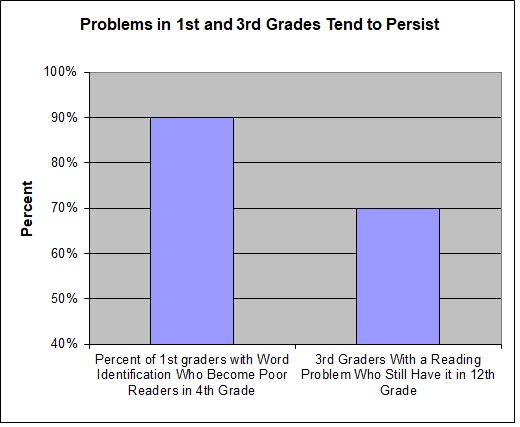
Waiting is Not an Option
Even more alarming is how often this has happened to smart and even gifted kids, whose parents gave them all the support. The challenge is, too often the support did not leverage these kids strengths or address all the relevant issues. We too made this mistake.
The next critical step is to:
Assess for Success. This would include assessing for:
- How your child learns best
- Executive function issues (e.g. working memory, processing speed and attention)
- Auditory and visual processing issues.
- Dyslexia or another learning disability
- Your child’s present level of reading fluency and reading comprehension
If the assessment shows considerable upside potential, we recommend you adopt the:
Mindset that Success is the Only Option. Then you consider:
Enrolling the services of the right professional for your child and you. Ideally, you want to work with professionals who will:
- Leverage your child’s strengths
- Address their challenges
- Boost their confidence and resilience
- Help you to be the coach and advocate your child needs
- Produce excellent results within months
If you would like to put your bright right brain kinesthetic learner
on their Pathway from Stress to Success by Third Grade or Sooner,
call us at 561-361-7495.
Feel free to share with others, who have a smart struggling child with significant upside potential.
Note, next week we will have our second article on Success by Third Grade or Sooner. We will be going into how to Assess for Success and leverage school and outside resources.

Reading comprehension is a significant issue for many of the students we are seeing. For the bright right brain kinesthetic learner, the gaps are often wider. As summer approaches, parents are often faced with the challenge of finding productive and beneficial activities for their children. One investment that should be at the top of many parent’s lists is a summer reading comprehension program. Reading comprehension is a fundamental skill that lays the foundation for academic success and lifelong learning.
In this blog post, we will explore the reasons why parents should prioritize investing in a reading comprehension program during the summer months.
Your child may be far below grade level in reading comprehension. Unless this is addressed, their reading comprehension may continue to fall further behind, this will impact performance in all their subjects and homework time and stress will continue to increase.
Your child is a lot smarter than their present reading comprehension level.
You found a program that can significantly improve your child’s reading comprehension, processing skills and their self-confidence. 3D Learner has helped students whose parents have invested in our program to improve their:
– Reading comprehension 2, 3 and even 4 grade levels over the next 4 to 6 months.
– Attention, working memory and visual processing, with improvements in reading speed, reduced homework time and stress and improvement in athletics
– Self-confidence, while lowering anxiety.
Two examples
One student was 2 years below grade level at a private school His parents were told to find a different school. They asked if their son could stay if they invested in a program that produced significant reading comprehension gains. After completing our program, their son improved his reading comprehension 3 grade levels in a year. His teacher said “He made more progress in a year than any student I had in 27 years of teaching”, Ms Brown, Md.
One student was at the 48th percentile in reading comprehension, despite a 115 IQ. The principal said the parents did not need to take any action, adding “Someone has to be average”. Mom became a mom on a mission. With our help, she improved her reading comprehension to the 95th percentile, her self-confidence soared the she went from a quiet introvert to an active leader in the band.
If you would like to discuss how you can help your child to significantly improve their reading comprehension, processing skills and self-confidence, you can either:
Call us at 561-361-7495 or
Click here to schedule an
Improve Reading Comprehension, Processing Skills and self-confidence conversation
To avoid the summer slide
The “summer slide” refers to the loss of academic skills and knowledge that students experience during the long break from school. Research has shown that children who do not engage in educational activities during the summer can lose up to two months’ worth of reading comprehension skills. Investing in a reading comprehension program helps to prevent this decline by keeping children actively engaged in reading and providing them with targeted strategies to improve their comprehension abilities.
Reading comprehension programs offer children exposure to a wide range of vocabulary and language structures. Through reading, children encounter new words, phrases, and sentence structures that expand their linguistic repertoire. By investing in a program that focuses on comprehension, parents ensure that their children are continually exposed to age-appropriate and challenging texts that foster the development of vocabulary and language skills. A strong vocabulary and language base not only help in understanding texts but also enhance communication skills, critical thinking abilities, and overall academic performance.
Reading comprehension programs go beyond surface-level understanding and encourage children to think critically and analyze texts. These programs often incorporate various comprehension strategies, such as predicting, summarizing, questioning, and making inferences, which help children develop higher-order thinking skills. Investing in a program that emphasizes critical thinking allows children to engage deeply with texts, understand complex ideas, and make connections between different pieces of information. These skills are essential not only for academic success but also for navigating real-world situations and becoming independent learners.
Summer reading comprehension programs can be designed to incorporate fun and engaging activities, making reading an enjoyable experience for children. By investing in a program that uses age-appropriate and interesting texts, parents can help foster a love for reading in their children. When children find pleasure in reading, they are more likely to continue reading independently, which, in turn, strengthens their reading comprehension skills. A positive attitude towards reading opens doors to a world of knowledge, imagination, and personal growth.
Investing in a summer reading comprehension program is a wise decision that can yield numerous benefits for children. Such programs prevent the summer slide, build vocabulary and language skills, strengthen critical thinking abilities, and foster a lifelong love for reading. By prioritizing reading comprehension, parents equip their children with essential tools for academic success and personal development. So, this summer, let’s make the investment in a reading comprehension program and empower our children to become confident readers and lifelong learners.
5 Benefits of the 3D Learner Reading Comprehension Program
1 – Especially for the right brain kinesthetic learner, who learns best when they see and experience information, we teach the way your child learns, we teach them to visualize what they read, and we often see significant gains in reading comprehension, the love for learning and self-confidence
2 – We identify and address the relevant attention, working memory, processing speed and visual processing issues
3 – We also improve reading fluency and math skills
4 – We help you to be an even more effective coach and advocate for your child
5 – Our students are often able to thrive in more challenging classes, do far better in school, and go to far better colleges and universities.
For Action Takers
If you would like to discuss how you can help your child to significantly improve their reading comprehension, processing skills and self-confidence, you can either:
Call us at 561-361-7495 or
Click here to schedule an
Improve Reading Comprehension, Processing Skills and self-confidence conversation

Right brain kinesthetic learners are often fun loving kids. The challenge is that anxiety, difficulty handling change, and the inevitable bumps in the road can negatively impact your vacation. Below are 5 tips to have the best possible vacation.
1- Presell the trip using a combination of visuals, YouTube videos and whatever works. The right brain kinesthetic learner thrives on knowing what to expect and often resists when they do not know what to expect.
2- Involve them in the planning, where appropriate. You may be going to a lake, and what they want to do most is kayak. Knowing that really helps
3- Discuss the fact that airplane delays, traffic jams and long lines are very common this time of year. Discuss what they can bring with them to manage what otherwise could be a frustrating time.
4- Layout a visual schedule for each day. The right brain kinesthetic learner often relaxes when they know what to expect. If appropriate, involve them in discussions when plans change.
5- If your child gets tired, dehydrated and/or hungry, easily, schedule some downtime, make sure they drink water regularly and make sure you have healthy snacks.

When parenting a bright right brain kinesthetic learner, it’s important to recognize the risks of solely focusing on reading fluency without addressing reading comprehension. While reading fluency refers to the ability to read words accurately and quickly, reading comprehension involves understanding and deriving meaning from the text. Both aspects are crucial for effective reading skills and academic success. Here are some risks associated with emphasizing reading fluency while neglecting reading comprehension:
1 – We have had hundreds of bright right brain kinesthetic learners, where their reading fluency had been improved, but their reading comprehension was two, three or even four years below grade level. We had one case where the school told the parents the student was reading a grade below grade level. I asked the psychologist if she had tested the student’s reading comprehension and she had not. I asked her to. Her testing showed his reading fluency was at the 9th grade level, but his reading comprehension was at the 2nd grade level.
2 – Superficial Understanding: Prioritizing reading fluency alone may lead to a superficial understanding of the text. Children may read quickly and accurately, but they may struggle to grasp the deeper meaning, analyze complex ideas, or make connections between different parts of the text. This limits their ability to engage with the material fully. The right brain kinesthetic learner often has trouble recognizing words they have seen before and understanding high frequency words (e.g. and, the, but, what, except, greater than, less than, etc.). This is why they often do not understand passages and almost always have problems with math word problems,
3 – Lack of Critical Thinking: Reading comprehension promotes critical thinking skills such as evaluating, analyzing, and synthesizing information. By focusing solely on fluency, children may miss out on developing these essential skills, which are vital for higher-level reading and academic performance across subjects.
4 – Reduced Vocabulary Development: Reading comprehension allows children to encounter new words in context and expand their vocabulary. When the emphasis is primarily on fluency, children may not spend enough time exploring the meaning and usage of words, leading to limited vocabulary growth.
5 – Struggles with Complex Texts: As children progress through their academic journey, they encounter increasingly complex texts that require strong comprehension skills. If reading comprehension is neglected, students may face challenges when confronted with sophisticated content, leading to frustration, lower confidence, and decreased interest in reading.
6 – Limited Application of Knowledge: Reading comprehension skills enable students to apply what they’ve read to other areas of learning. Without a solid foundation in comprehension, students may struggle to connect information from different sources or transfer knowledge to new contexts, hindering their overall academic growth.
7 – Improving reading comprehension often includes addressing visual process, working memory and processing speed issues.

For the bright right brain kinesthetic learner, improving reading comprehension requires to both identify address all the relevant issues and to ignite a love for reading.
8 – For the right brain kinesthetic learner, improving reading comprehension includes identifying and addressing issues with word recognition, understanding the small words and getting a non- or struggling reader to like reading.
To support your child’s reading development comprehensively, consider integrating strategies that enhance both reading fluency and reading comprehension. Encourage them to read a variety of texts, discuss the content, ask questions, make predictions, and summarize what they’ve read. Providing a balanced approach will foster their overall reading abilities and help them become more confident and proficient readers.
For the bright right brain kinesthetic learner, reading comprehension is often a major challenge. At 3D Learner, we specialize in helping the bright right brain kinesthetic learner to improve their word recognition, vocabulary, working memory, processing speed, visual processing and igniting a love for reading, in addition to improving reading fluency.
If you would like to discuss how we could develop your child’s academic skills, while reducing anxiety and building their self-esteem, call us at 561-361-7495 or click here to schedule a Improve reading fluency and reading comprehension conversation .



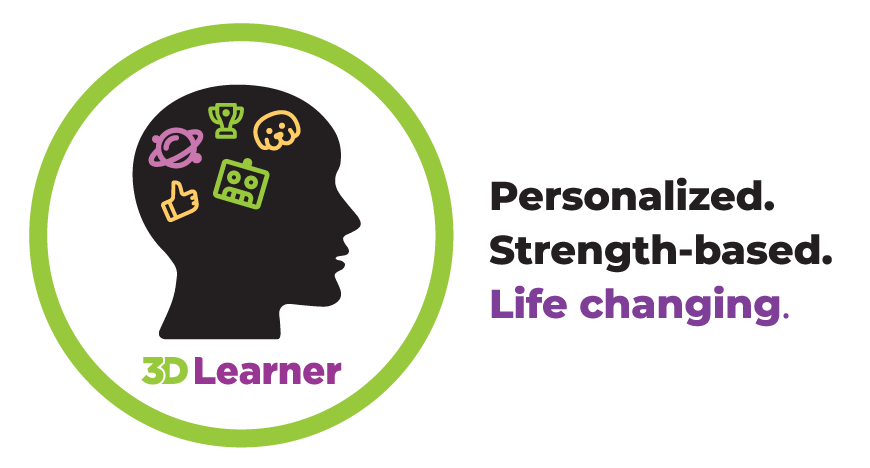
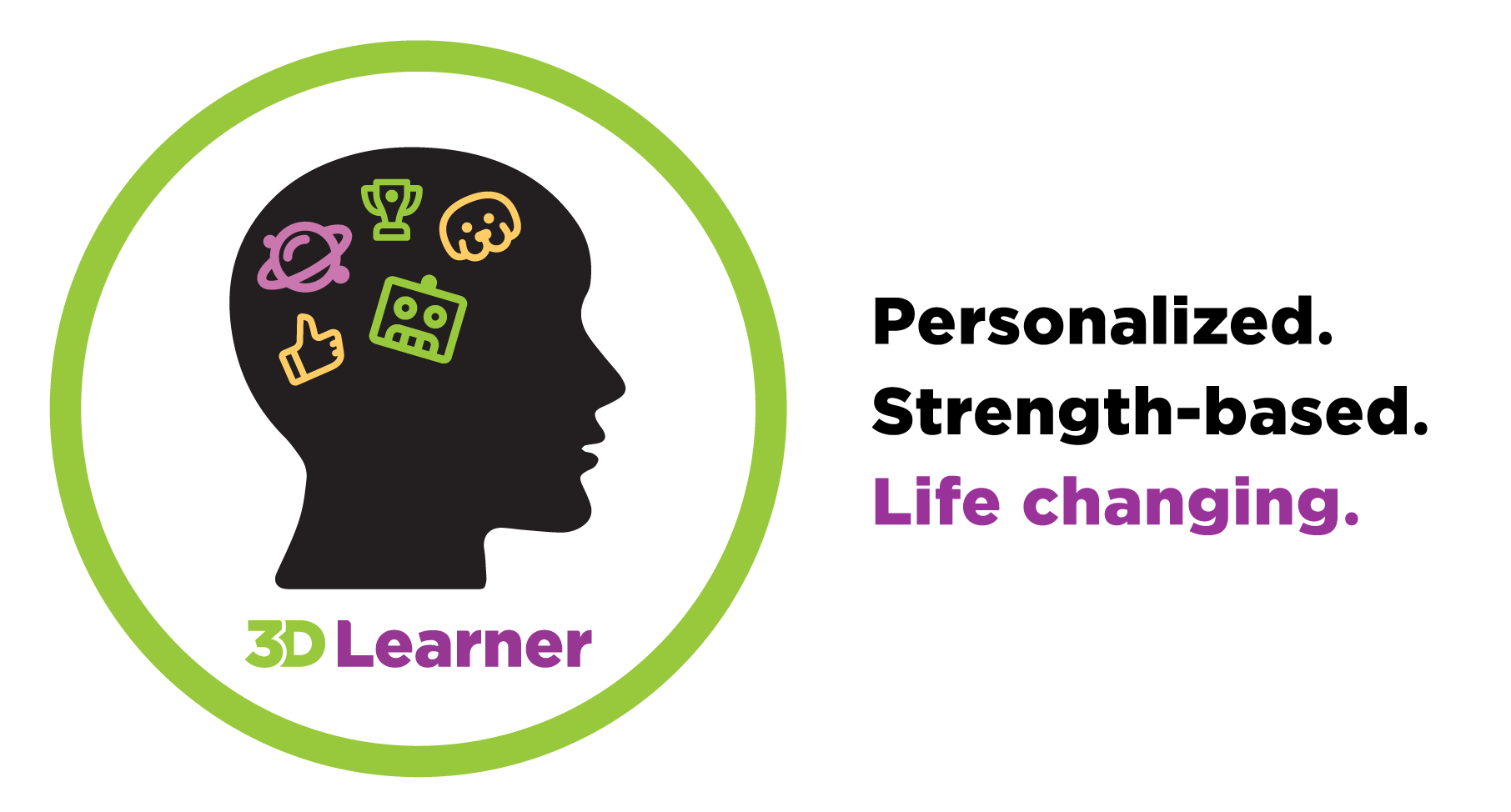





Recent Comments